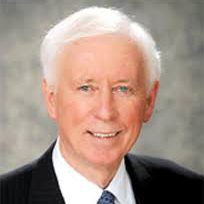Ethics: the Moral Imperative in Medicine
In my initial blog I wrote that the message I will carry with me throughout this year as president of the World Medical Association (WMA) will emphasize three major issues:
- The moral imperative of ethics in medicine
- The challenge of noncommunicable diseases
- The threat of climate change
These I believe encompass in large part the essential work of the WMA as it endeavors to achieve the highest standards of medical care, ethics, education and health-related human rights for all people. Today the subject is ethics.
One might with good reason ask why talk about ethics? One might say that the importance of physicians being ethical is obvious. And one might ask why state the obvious?
However, I support the reasoning that it is important to from time to time state the obvious because the obvious if never stated, risks becoming not so obvious. So, to state the obvious.
As physicians we must have moral authority and speak and act with moral authority. Our duty to our patients demands it.
That means we must speak out on broad public health issues. Doing that makes our message more credible and more effective when we advocate on matters of public policy. We are most credible when we speak from a platform based on principle and ethics.
Those physicians from around the world who came together to form the World Medical Association in 1947 recognized this.
They understood that an organization was needed to become the authoritative voice on global standards for medical ethics and professional conduct, rather than focusing solely on protecting the interests of the profession.
They recognized the importance to the profession of providing guidance, moral support and practical advice.
They recognized the importance of endeavoring to achieve the highest possible standards of medical care, ethics and health-related human rights for all people.
From the beginning this intent was codified in our International Code of Medical Ethics and the Declaration of Geneva – also known as the modern “Hippocratic oath”.
Other declarations have addressed issues such as patient safety, medical ethics and advanced technology, end of life care, access to care, protection of medical personnel in armed conflicts, and more recently the use of social media.
Today the WMA is bigger, stronger and more active than ever before and it serves as a voice recognized the world over.
There is perhaps no clearer example of that recognition than the Declaration of Helsinki that advises physicians on doing medical research on human subjects.
The Declaration of Helsinki is the loadstone; the North Star if you will that guides physicians, governments and industry in this area.
Next month in Cape Town, South Africa the WMA is convening distinguished ethicists, educators and government officials from around the world to look at potential revisions of the Declaration of Helsinki.
Not to change core principles, but to determine whether more guidance is needed to deal with the complexities of today’s world.
But ethical guidance alone is not enough. Therefore we also talk about additional goals of moral support and practical advice. To that end the WMA is active in making its voice heard.
Most recently the WMA spoke out urging the government of Bahrain to overturn the criminal court verdict of 14 healthcare professionals sentenced to jail for providing care to the injured.
We called on the government of Syria and President Assad to protect health care facilities and their workers from interference, intimidation or attack.
And earlier this year our president Dr. deAmaral and chair of council Dr. Haikerwal went to Turkey where they marched in solidarity with fellow physicians in opposition to threats to professional autonomy and self-regulation.
Now more than ever, this WMA, this beacon of principle and ethics is needed.
And that is stating the obvious.

